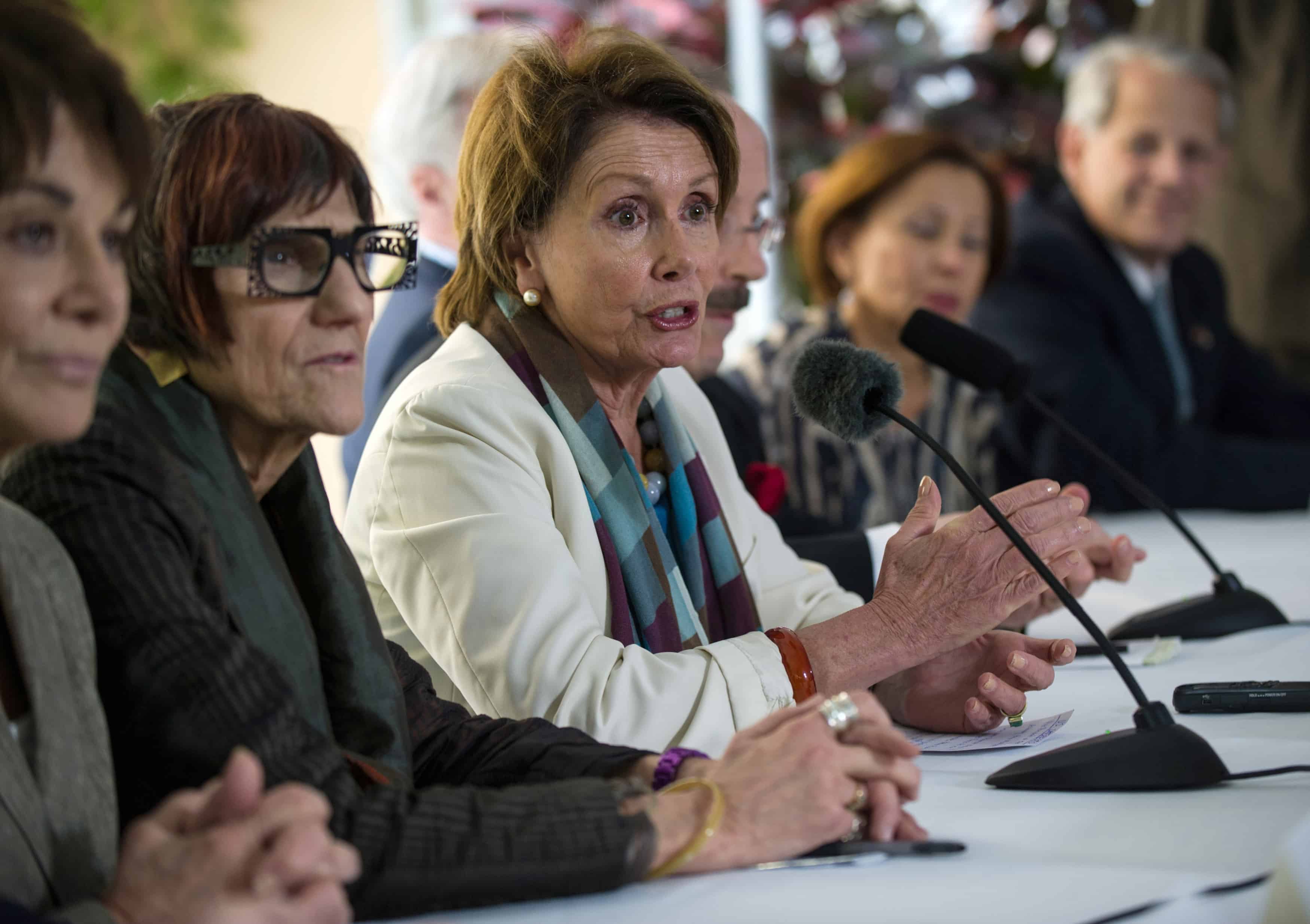Read all of our Cuba coverage here
HAVANA, Cuba – U.S. House Minority Leader Nancy Pelosi and a delegation of congressional Democrats concluded a three-day trip to Cuba this week by heaping praise on President Barack Obama’s attempt to mend relations with the island but offering few details about their meetings with high-level Cuban officials.
After addressing reporters on the back patio of a U.S. diplomat’s residence on Thursday, Pelosi, D-Calif., and the eight other members of the delegation, departed for an appointment with Cuba’s first vice president, Miguel Díaz-Canal, in what is believed to be the first official meeting between U.S. politicians and the man next in line to succeed 83-year-old Raúl Castro.
Pelosi said the purpose of their trip was to gauge Cubans’ reactions to Obama’s moves, and they had perceived “great enthusiasm” among the Cubans they spoke with.
“We’re proud of our president’s decision to move forward and change our policy,” she said.
The group was scheduled to depart the island after meeting with Díaz-Canal, 54, who is due to take over Cuba’s one-party communist government in 2018, when Raúl Castro has said he will step down.
Pelosi’s group was the first official House delegation to visit Cuba since Obama and Castro simultaneously announced Dec. 17 that the countries would re-establish diplomatic relations that were severed by Washington in 1961.
But coming immediately after a visit by Sen. Mark Warner, D-Va., Sen. Claire McCaskill, D-Mo., and Sen. Amy Klobuchar, D-Minn., the group is just one of several congressional delegations who seem eager to engage in tropical diplomacy while ducking the brutal cold in Washington. A group of Republican lawmakers led by Sen. Jeff Flake, Ariz., is also planning a visit.
The Pelosi delegation’s trip comes as some of the initial enthusiasm for the Cuba thaw has given way to more sober realizations that the two countries remain far apart on many issues — including some of the nuts-and-bolts elements related to the re-opening of embassies in both capitals.
Cuban authorities have criticized Obama in recent weeks for not going father to lift trade and travel restrictions. They say truly normal relations between the countries won’t be possible until the longstanding trade embargo is gone and the U.S. returns the land occupied by the Guantanamo Naval base, among other historic grievances.
But Pelosi’s delegation appeared far more concerned with re-capturing the excitement sparked in both capitals among supporters of detente. Her delegation included Rep. Eliot Engel, N.Y., Rep. Steve Israel, N.Y., Rep. Nydia Velazquez, N.Y., Rep. Jim McGovern, Mass., Rep. Rosa DeLauro, Conn., Rep. Collin Peterson, Minn., Rep. Anna Eshoo, Calif., and Rep. David Cicilline, R.I.
Pelosi said the group met for extensive talks with Cuban Foreign Minister Bruno Rodríguez and with Josefina Vidal, the Cuban diplomat who led last month’s opening round of negotiations with Obama officials. Those talks will resume in Washington next week.
Pelosi said the group also met with Cardinal Jaime Ortega and members of Cuban civil society. The delegation did not meet with any of Cuba’s leading dissidents, according to a U.S. official.
Engel said the lawmakers broached the topic of human rights in its discussions with Cuban officials.
“We’re very concerned with human rights and dissident rights,” Engel said. “I’d like to see more changes from the Cuban side.”
The lawmakers said they also spoke to Cuban officials about U.S. food sales to the island, internet technology and the island’s emerging small-business sector.
The Democrats said they believed that new legislative proposals to lift travel restrictions would have “strong bipartisan support,” and called on Republican congressional leaders to let the bills come to the floor for a vote.
“It’s inevitable that it will happen,” said Pelosi, referring to an end to the sanctions levied by President John F. Kennedy in 1960.
© 2015, The Washington Post






